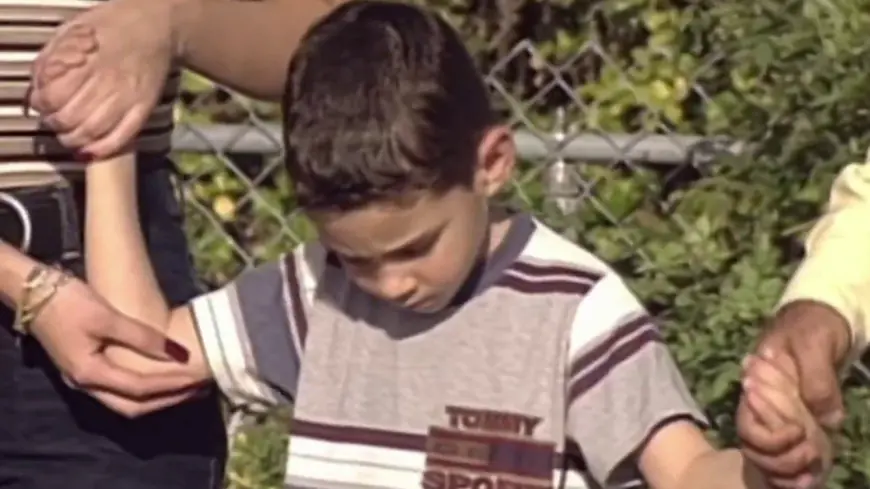25 years after international custody battle, Elián González's lawyer still regrets outcome
South Florida history has featured many tumultuous events, but perhaps none of them sparked as much passion, and had as many ripple effects, as the sage of the little Cuban boy who caused an international tug of war. Elian Gonzalez was five years old when fishermen found him clinging to an inner tube near Fort Lauderdale on Thanksgiving Day 25 years ago. His mother was found dead. His father was in Cuba. So Elian’s Miami relatives took him in. “All of a sudden, blew completely out of proportion,” said former Miami mayor Manny Diaz. Miami’s Cuban community rallied behind Elian’s Miami family, lobbying for the boy to stay here in the United States rather than be sent back to communist Cuba, but Elian’s dad wanted his son back. “When you bring it up, there are still very strong feelings, from all sides of the story,” Diaz said. Twenty-five years ago, he was one of the lawyers representing Elian’s Miami relatives for free. I asked him what comes to mind when he thinks of those days. “Sad, probably my most vivid recollection is having spent six months fighting not just the Cuban government but also our own government,” Diaz responded. He said the legal team’s goal was to get Elian his day in family court, like any other situation in which one parent has died and there’s a custody issue, so a judge could decide which situation was best for the child. That never happened. “Politics took over and really did severe damage to a family,” Diaz said. After months of demonstrations and news conferences, on April 22, 2000, heavily armed federal agents stormed the family’s Little Havana home. They took Elian to be reunited with his father in Cuba, and the community was outraged. Protests turned violent, with police in riot gear spraying tear gas to disperse crowds of angry people. Diaz says the irony is that Elian’s father wanted a visa to stay in the United States until Fidel Castro saw a propaganda opportunity. “Obviously it put them in a very tough position because once Castro put his arm around him, it’s like the Godfather when he puts his arm around you, it’s all over, right?” Diaz said, referring to Elian’s dad and his wife in Cuba. “There was never any doubt in my mind that the father really wanted to come here.” According to Diaz, attorney general Janet Reno had agreed to connect the Cuba and Miami branches of the family and let them decide, without outside interference, what to do with Elian. But she also authorized the raid on the house, which happened the very next day. “They were still a family and we should’ve respected always what the family wanted, not what some politicians wanted in the United States or some dictator in Cuba,” Diaz said. The passion on the streets fueled a furious backlash against the Clinton administration. “It was clear to me that the reaction from the community was going to be one of payback on election day it certainly was,” Diaz said, adding that it led directly to Al Gore losing the presidential election that year. “Absolutely, I mean look, 500 vote difference.” Back in Cuba, Elian Gonzalez grew up in the public spotlight and is now part of the Communist Party’s upper echelon.

South Florida history has featured many tumultuous events, but perhaps none of them sparked as much passion, and had as many ripple effects, as the sage of the little Cuban boy who caused an international tug of war.
Elian Gonzalez was five years old when fishermen found him clinging to an inner tube near Fort Lauderdale on Thanksgiving Day 25 years ago. His mother was found dead. His father was in Cuba. So Elian’s Miami relatives took him in.
“All of a sudden, blew completely out of proportion,” said former Miami mayor Manny Diaz.
Miami’s Cuban community rallied behind Elian’s Miami family, lobbying for the boy to stay here in the United States rather than be sent back to communist Cuba, but Elian’s dad wanted his son back.
“When you bring it up, there are still very strong feelings, from all sides of the story,” Diaz said.
Twenty-five years ago, he was one of the lawyers representing Elian’s Miami relatives for free. I asked him what comes to mind when he thinks of those days.
“Sad, probably my most vivid recollection is having spent six months fighting not just the Cuban government but also our own government,” Diaz responded.
He said the legal team’s goal was to get Elian his day in family court, like any other situation in which one parent has died and there’s a custody issue, so a judge could decide which situation was best for the child. That never happened.
“Politics took over and really did severe damage to a family,” Diaz said.
After months of demonstrations and news conferences, on April 22, 2000, heavily armed federal agents stormed the family’s Little Havana home. They took Elian to be reunited with his father in Cuba, and the community was outraged. Protests turned violent, with police in riot gear spraying tear gas to disperse crowds of angry people.
Diaz says the irony is that Elian’s father wanted a visa to stay in the United States until Fidel Castro saw a propaganda opportunity.
“Obviously it put them in a very tough position because once Castro put his arm around him, it’s like the Godfather when he puts his arm around you, it’s all over, right?” Diaz said, referring to Elian’s dad and his wife in Cuba. “There was never any doubt in my mind that the father really wanted to come here.”
According to Diaz, attorney general Janet Reno had agreed to connect the Cuba and Miami branches of the family and let them decide, without outside interference, what to do with Elian. But she also authorized the raid on the house, which happened the very next day.
“They were still a family and we should’ve respected always what the family wanted, not what some politicians wanted in the United States or some dictator in Cuba,” Diaz said.
The passion on the streets fueled a furious backlash against the Clinton administration.
“It was clear to me that the reaction from the community was going to be one of payback on election day it certainly was,” Diaz said, adding that it led directly to Al Gore losing the presidential election that year. “Absolutely, I mean look, 500 vote difference.”
Back in Cuba, Elian Gonzalez grew up in the public spotlight and is now part of the Communist Party’s upper echelon.
What's Your Reaction?









































































































